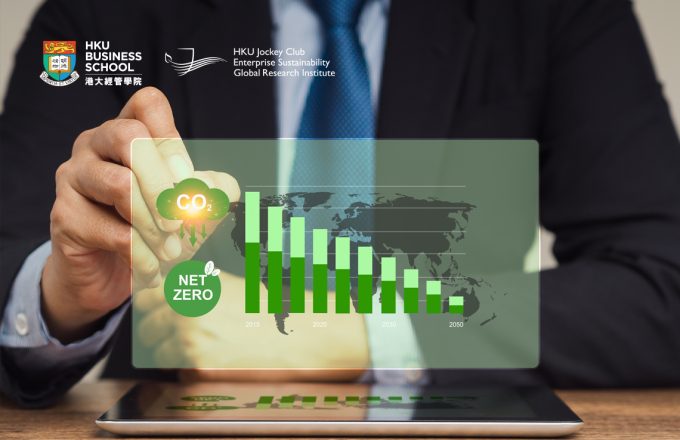May the Force be with you

Ding! These days, it seems that we live in a sea of nonstop, never-ending mobile notifications: every waking moment, we receive buzzes and pings that remind that we have to do things or be somewhere or respond to someone about something. Ding!
But before you put your device in “do not disturb” mode, or throw your phone into the nearest body of water out of frustration, it would be wise to remember that some of these notifications are actively trying to help us lead healthier lives. However, because notifications are frequently ignored and often do not achieve their desired purpose, researchers are working hard to find new ways to make them more effective.
The importance of touch modes
Along with two colleagues, Zhenhui (Jack) Jiang, Professor of Innovation and Information Management at the University of Hong Kong, authored a paper titled “Pushing Yourself Harder: The Effects of Mobile Touch Modes on Users’ Self-Regulation”. The authors examined if a specific type of mobile interaction – either a tap or a press on a smartphone – would make people using health-related mobile applications (apps) more likely to perform healthy behaviours.
But…why? Touching your phone is touching your phone – how much force you use doesn’t matter, does it? Actually, according to Jiang et al, it does. The theory behind this is “embodied cognition”, defined by the American Psychological Association as “the thesis that the human mind is largely determined by the structures of the human body (morphology, sensory and motor systems) and its interactions with the physical environment.” Simply put: we are more than our brains. Our thoughts, our “selves” even, are determined by our experiences in the physical world.
Embodied cognition theory
Early experiments classified these experiences as metaphors, like “trust is warm”, where participants were asked to hold cups of coffee. Those holding warm cups were more likely to judge a person with whom they interacted as being trustworthy than those holding cold cups. Or “future is ahead”, in which people were told to think about the future or the past – those thinking of the future tended to lean forward, those thinking of the past leaned back. Or “important is heavy” – people holding heavier clipboards judged currencies, opinions and leaders mentioned on these clipboards to be more important than those on lighter clipboards.
Our brains then use these metaphors to create automatic associations between actions and attitudes, which then become memories that “can be subliminally activated when similar body states are experienced”. So if someone, for example, associates the action of reaching out for an item they like with a positive feeling, they are then more likely to experience positive feelings when reaching out for other things.
Force and touchscreen interaction
Jiang and his co-writers believe that embodied cognition applies to touchscreens too. “As a fundamental way of interacting with the physical world, force is often applied when we make an effort to achieve goals”, they say. Their background research indicated that when online shopping, touch-based interactions, rather than more traditional mouse clicking, gave shoppers a “greater sense of ownership and [increased their] purchase intentions.” One may see this in movies and on television as well – when the hero dramatically struggles to enter a code to rescue someone, or the hackers finally break through a firewall, it is often depicted through the use of force: furious typing or jabbing a touch screen, not passively moving a mouse.
One of their hypotheses was that interacting with a device with more force – i.e. pressing comparatively hard on a touchscreen rather than lightly tapping – can trigger the mental metaphors mentioned above, and that this extra force can induce people to make positive health-related decisions; specifically, self-regulation decisions like ordering healthier food options on a restaurant tablet, or using mobile health apps that track fitness levels or calorie intake.
Their second hypothesis focused on how people interpret and use the information they infer from interacting with their device and how this is related to their health knowledge and health orientation. Jiang et al’s background research suggested that the effectiveness of health interventions is often affected by how much people know about health (their health knowledge), and how motivated they are to seek health improvements or avoid health hazards (their health orientation).
People with more health knowledge “tend to feel more responsible for their health and well-being”, while people’s health orientation falls into two categories – promotion-focused, which involves “striving for ideals, aspirations and rewards”; and prevention-focused, which “is associated with the need for safety and involves…responsible behaviours”. Jiang et al conjectured that people who used more force would be more likely to have a higher health knowledge and have a promotion-focused health orientation.
To test these hypotheses, the researchers devised three unique experiments. The first experiment examined resisting temptation, the second, exercise goals and the third, hygiene education.
Three unique experiments
The background to the first study, “Touch Modes and Beverage Choice”, was the idea that it is often challenging for people to pass over pleasurable but less healthy foods in favour of healthy but less tasty ones. Outside a busy university cafeteria, the experiment administrators randomly asked passing students if they wanted a free drink. They were given a smartphone with information about four different drinks – two “healthy but not tasty” and two “tasty but not healthy” – and asked to choose the one they most wanted. This action requires self-regulation, which typically needs strong willpower, so the experiment was designed to measure willpower and capture product choices, using the hypothesis that pressing with force, rather than tapping, would make it more likely people would choose a healthier option.
The 120 participants were equally and randomly assigned to either a pressing or tapping group. The “tappers” could tap on each drink to get a short description and then again to get detailed ingredient information, which included calorie and sugar content. The “pressers” pressed on beverage images with a certain amount of force to generate these pop-ups, and then pressed again on the pop-ups to access drink details. Simplifying the results somewhat, the “pressers” were more likely to chose the healthy (but not tasty) drinks than the “tappers”.
In the second experiment, “Touch Modes and Physical Exercises”, the researchers used a mobile fitness app to measure self-regulation in terms of exercise goals and exercise amounts; specifically if the participants were “willing to forgo short-term comfort and exert themselves to achieve long-term health benefits”. Participants at a gym were first asked to fill in a survey that measured their health goals, then shown different short articles written from either a promotion or a prevention health orientation. Afterwards, they were given a smartphone with an experimental mobile app on it and asked to set their exercise goals by either tapping or pressing. Once again, they found that pressing led to a greater increase in motivation, and those who pressed also set higher exercise goals for themselves. They also found that participants who read the promotion-oriented articles were more likely to press, rather than tap.
The last experiment, “Touch Modes and Health Education”, aimed to show that pressing leads to higher self-regulation as it induces greater overall motivation. The focus of this cleverly-designed study was personal hygiene behaviour. Participants were told that they would be doing two tasks – hygiene education and hygiene product recommendation. For the first task, they were divided into three categories, tapping, pressing and holding. They were then given a smartphone with a mock personal hygiene education app with eight topics that they needed to read about and then tap, press or hold a button that stated their commitment to maintaining that practice.
The second task gathered the participants in a room where supposedly they were helping choose hygiene products like masks and hand sanitiser for the university to distribute. While the participants were focused on this task, in reality they were being observed by the experimenters, who were checking if the participants were observing the hygiene practices to which they had committed in task one – i.e. staying socially distant, not shaking hands, avoiding touching their face when wearing a mask, and so on. Lapses in hygiene practices were noted and participants received a score between zero and four.
Again, the experiment determined that the pressers had “won” – they had the highest self-regulation intention and were more likely to observe the hygiene practices. Another important finding from the third experiment was that pressing was more significant than either holding or tapping – this clearly showed that the exertion of force was the important variable, not the duration of contact with the screen.
The Force is a powerful ally
Essentially, the three experiments worked together, providing converging evidence that pressing touchscreens when making decisions about health actually increases self-regulation, especially in people who know a lot about health and who have a positive health orientation.
That’s great, but as a layperson might ask: “Is there a point to this? Does this research mean outside of the academic context? Will this knowledge lead to anything useful?” “Absolutely!” is the answer to all three questions.
These findings have several theoretical implications that build on current research and set the stage for future discoveries. First, in the domain of healthcare information technology: the study highlights the importance of self-regulation when maintaining and improving health, since even when people are aware of what healthy behaviours they need to perform, they still “may fail to consistently perform [them] when facing temptations or physical challenges”. The results show that subliminal “nudges”, like pressing hard on a touch screen to access stronger motivation, may help people overcome temptations.
The study also opens the door to research on other types of mobile interaction, like gesturing or adopting a certain posture, that may be used to trigger other forms of “embodied interaction”. As human-computer interactions move away from the mouse towards touchscreens and wearables and virtual reality devices, the movements associated with these interactions “can also trigger thoughts about prior experiences” and the memories that are activated can further affect decisions and behaviours.
There are practical implications to the study too, particularly in terms of force-based interaction technology. By proving that pressing a touch screen leads to positive results, Jiang and his co-authors are giving digital designers a clear direction, especially in products where users need to overcome urges or temptations – like work-related productivity apps or education apps where concentration is necessary.
The finding that self-regulation is more effective in people with more health knowledge and a positive health orientation will also affect the marketing industry. App makers now have access to modern marketing tools like creating customer profiles through search histories and mobile interaction data analysis, for example. These methods provide better and more accurate data than blunt market surveys, and allow app makers to provide more relevant health-related content to users. When used in combination with force-based interaction, this accurate information might well make the marketing and use of health-related products way more effective.
Buzz!
So you see, all these notifications do have a purpose, at least most of them. Next time you use a health app, or select something on a touchscreen at a restaurant, remember that someone has thought long and hard about your interaction, and that interface has been designed with care and attention. And also remember, if you really want it, press hard – use the force, as the famous saying goes.
Ding!
About this Research
Yang (Alison) Liu, Zhenhui (Jack) Jiang, Ben C. F. Choi (2022). Pushing Yourself Harder: The Effects of Mobile Touch Modes on Users’ Self-Regulation. Information Systems Research. Forthcoming.
References
Brasel S.A., Gips J. (2014). Tablets, touchscreens, and touchpads: How varying touch interfaces trigger psychological ownership and endowment. J. Consumer Psych. 24(2):226–233.
Dourish P. (2004). Where the Action Is: The Foundations of Embodied Interaction (MIT Press, Cambridge, MA).
Embodied Cognition. (2021, June 25). Stanford Encyclopedia of Philosophy. Retrieved March 28, 2023, from https://plato.stanford.edu/entries/embodied-cognition/
Embodied cognition definition. American Psychological Association Dictionary of Psychology. Retrieved March 29, 2023 from https://dictionary.apa.org/embodied-cognition.
Johnson E.J., Hariharan S. (2017). Public health awareness: Knowledge, attitude and behaviour of the general public on health risks during the H1N1 influenza pandemic. J. Public Health 25(3):333–337.
Keller PA (2006) Regulatory focus and efficacy of health messages. J. Consumer Res. 33(1):109–114.
McNerney, S., (November 4, 2011). A Brief Guide to Embodied Cognition: Why You Are Not Your Brain. Scientific American. https://blogs.scientificamerican.com/guest-blog/a-brief-guide-to-embodied-cognition-why-you-are-not-your-brain/
MovieZ4U. Best Hacking Scenes In Movies [Video]. Accessed March 31, 2023. https://www.youtube.com/watch?v=j7BVMYcdPxs
Murray E., Hekler E.B., Andersson G., Collins L.M., Doherty A., Hollis C., Rivera D.E., West R., Wyatt J.C. (2016). Evaluating digital health interventions: Key questions and approaches. Amer. J. Preventive Medicine 5(51):843–851.
Plank R.E., Gould S.J. (1990). Health consciousness, scientific orientation and wellness: An examination of the determinants of wellness attitudes and behaviors. Health Marketing Quart. 7(3–4):65–82.
Talmy L. (1988) Force dynamics in language and cognition. Cognitive Sci. 12(1):49–100.
White P.A. (2012) The experience of force: The role of haptic experience of forces in visual perception of object motion and interactions, mental simulation, and motion-related judgments. Psych. Bull. 138(4):589–615.
Williams L.E., Bargh J.A., Nocera C.C., Gray J.R. (2009). The unconscious regulation of emotion: Nonconscious reappraisal goals modulate emotional reactivity. Emotion 9(6):847–854.







